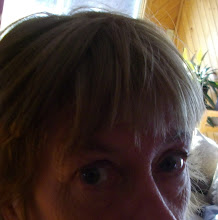More from D.Suzuki's, The Sacred Balance
Only human beings have come to a point where they no longer know why they exist. They ... have forgotten the secret knowledge of their bodies; their senses, their dreams.
- Lame Deer
All human stories work to weave meaning and order out of disjunction and confusion, but the story told by the Western world specifically excludes human experience as a source of truth. We assert an "objective reality" made of abstract universal principles, which is more correct, more accurate than the messy sensory world we experience daily. But that sensory world is the one we are part of, which penetrates us, and which we create and re-create continually. Just a moment's thought reveals how "subjective" the world really is.
Walk your garden in mid-summer and watch how it moves and changes around you. Each plant has a history known to you--where it came from, who brought it to the garden, where else it has grown, how it has thrived. Each plant is dense with relationships made and sustained by your consciousness, like a field of meaning extending through time and space. Flower beds grow other meanings as well: some speak directly to you--of success, perhaps, or reproach for weeding or pruning still undone--others hint at possibilities, at relationships with other parts of the garden world. Do the colors changing on that leaf describe the chemistry of the soil, or do they signal the arrival of another organism--a mildew, perhaps, or a fungus? Ants always crawl on the peony's fat buds; how do they affect the flower? A multitude of living beings, including the gardener, create and maintain that field of meaning--butterflies, birds, insects, soil organisms moving and acting in their own sphere, intersecting with each other, intent, purposive, beautiful.
Is this "objective reality"? Of course not. Is it reality? Of course.
Attending to our experience, putting spirit back into the fingertips, allows us to redefine consciousness--instead of being trapped inside the mind it becomes a reach, a region of care, the conversation we have with the garden around us. "The conversation of mankind", according to ecologist Joseph Meeker, "is an open and continuing dialogue that connects our bodies and minds intimately with the processes of nature that permeate all life forms." Like any other dialogue, it requires attention. He believes:
Learning to converse well with the world can begin by listening carefully to the messages sent ceaselessly by our bodies and by the other forms of life that share this planet. The best conversations are still those that play variations on that great and ancient theme:
"I'm here; Where are You?"
look, upon my garden gate's
a snail, that's what it is
- Donovan
~~~~
Wednesday, May 20, 2009
Subscribe to:
Post Comments (Atom)

No comments:
Post a Comment